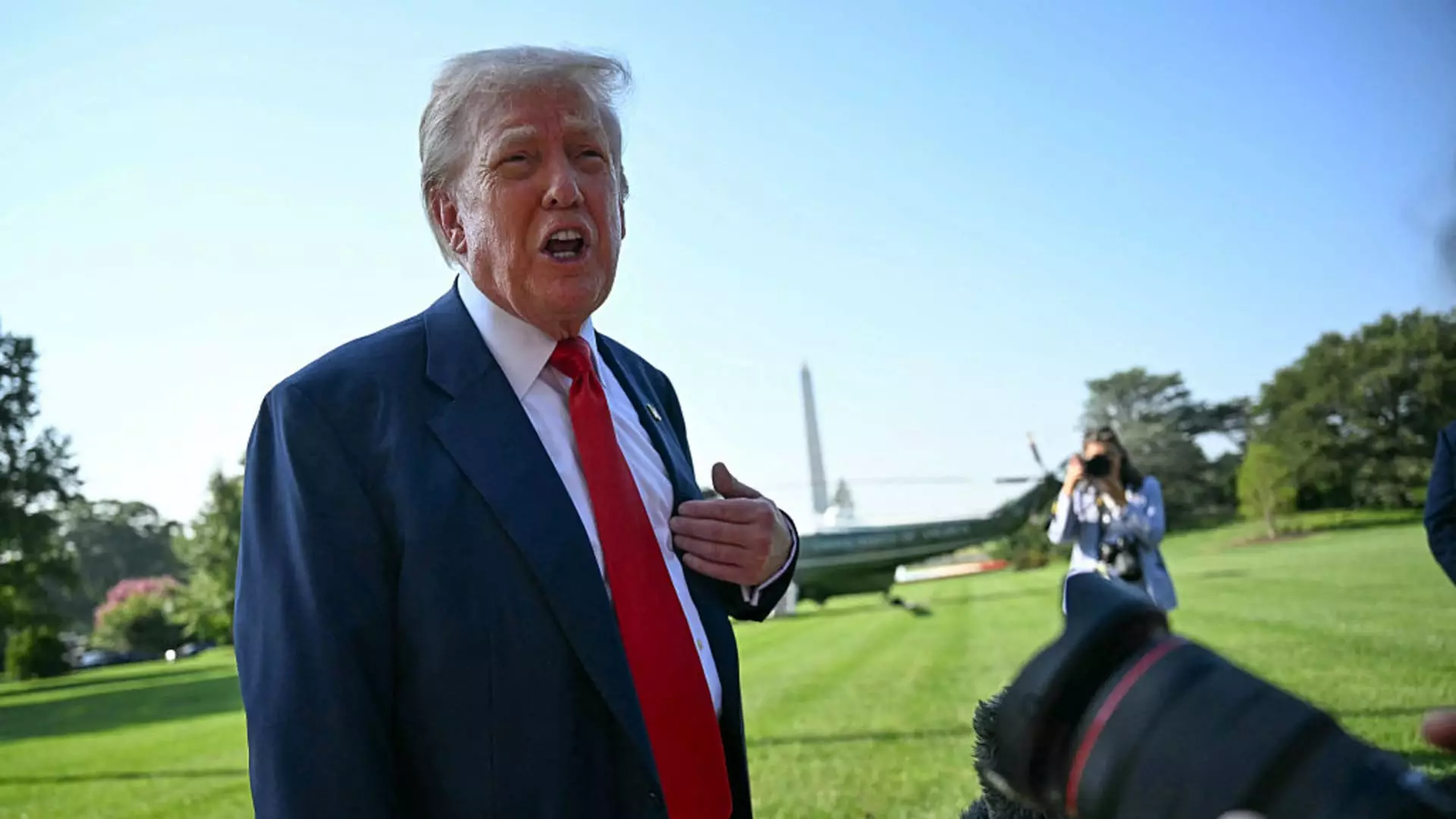The murky saga surrounding Jeffrey Epstein continues to cast a long, sinister shadow across the political landscape, exposing the fragile veneer of justice and accountability in our society. President Donald Trump’s responses to questions about Epstein reveal an underlying truth: the veneer of moral clarity is often a carefully constructed illusion, masking deeper systemic failures. By deflecting inquiries and redirecting focus toward other figures like Bill Clinton or Larry Summers, Trump’s comments serve as a reflection of how powerful networks carefully select who faces scrutiny and who remains shielded. This selective amnesia complicates our pursuit of truth, revealing a disturbing tendency to shield individuals with political or financial clout from the fallout of scandal.
The involvement of high-profile personalities is not incidental; rather, it highlights a broader societal reality: justice is often manipulated by those wielding influence. The fact that prominent figures associated with Epstein seldom face rigorous scrutiny underscores the duplicity ingrained in our political and judicial institutions. For many, acknowledging these uncomfortable truths threatens the comforting myth of a fair and equal justice system. Instead, it exposes how the consolidation of power allows certain elites to evade accountability, fostering an environment where the truth remains inconvenient and elusive.
Whispers of Cover-up and the Fragile Facade of Transparency
Behind the scenes, the legal maneuvers involving Ghislaine Maxwell and the unsealing of investigative files are emblematic of a system that often prefers secrecy over transparency. The DOJ’s recent retreat on promises to disclose Epstein-related files further fuels suspicion that the pursuit of justice is secondary to safeguarding institutional interests. President Trump’s insistence that he has not entertained pardons for Maxwell exemplifies an elusive political posture—an attempt to appear detached from the scandal, even as the underlying issues persist. His claim that “somebody could have written a letter and used my name” during the Epstein era exemplifies the narrative of plausible deniability that powerful figures craft to distance themselves from scandals.
This dance of denial is characteristic of a culture that values image over truth. The attempt to manipulate public perception and control the narrative surrounding Epstein and Maxwell indicates a broader pattern of obfuscation within the corridors of power. The systemic reluctance to confront uncomfortable truths, especially when influential figures are implicated, reflects a fundamentally flawed justice system that privileges reputation over real accountability. The questionable openness of investigations and the selective unsealing of files serve as stark reminders that transparency often takes a backseat when political expediency is at stake.
The Moral Compromise and the Power of Public Perception
Ghislaine Maxwell’s ongoing trial and the vigorous defense mounted by her lawyers highlight a pivotal point: the manipulation of public perception is a crucial tool for those entangled in scandal. Her attorney’s repeated assertions about her being unfairly treated and unjustly branded as a scapegoat reveal an attempt to shape her narrative in opposition to public outrage. This strategic framing underscores how legal battles are often less about justice and more about controlling the story, garnering sympathy, and preserving social and political capital.
The narrative surrounding Maxwell and Epstein also exposes the dangerous morality of silence and complicity. While public outrage about the case persists, myriad powerful figures continue to operate in the shadows, shielded by legal pretenses and political maneuvering. This opacity fosters a climate of distrust and suspicion that erodes faith in our institutions. It raises fundamental questions about our collective moral integrity: Are we prioritizing justice or protecting our social elite? This ongoing saga demands a critical reevaluation of how social hierarchies influence legal proceedings and public discourse.
In the final analysis, the Epstein case is far more than a scandal involving a disgraced financier; it’s a mirror reflecting the diseased underbelly of our societal and political systems. The alleged collusion, cover-ups, and strategic deflections reveal a disturbing trend: justice often bends to the whims of power, leaving the victims voiceless and the truth obscured. As a society rooted in liberal values of fairness and accountability, we are compelled to confront these uncomfortable realities rather than turn a blind eye to the criminally intertwined web of privilege and impunity. Only through relentless scrutiny and unwavering commitment to transparency can the illusion of justice give way to genuine accountability.


Leave a Reply